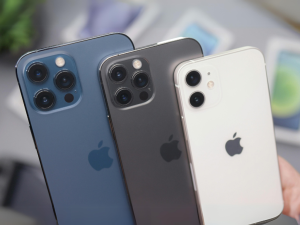On March 21, 2024, the United States Justice Department, along with several states, initiated a groundbreaking antitrust lawsuit against tech giant Apple, accusing the company of unlawfully monopolizing the smartphone market. This lawsuit marks the latest in a series of legal challenges faced by major tech firms as the government seeks to rein in the power of Big Tech.
Attorney General Merrick Garland highlighted the essence of the complaint, alleging that Apple has maintained its dominance in the smartphone market not solely through competitive merits but by violating federal antitrust laws. The lawsuit particularly focuses on Apple's restrictive app store terms, exorbitant fees, and its closed ecosystem approach, which critics argue stifles competition and innovation.
Apple, in response, has vehemently denied the allegations, asserting that the lawsuit threatens to impede the company's ability to innovate and provide consumer-friendly technology. The tech giant's stock witnessed a 3% decline following the announcement of the lawsuit, indicating the potential ramifications it could have on Apple's business operations and market standing.
The lawsuit seeks three specific remedies that could significantly alter Apple's business model. It aims to prevent Apple from using its app store to block innovative new apps and to eliminate restrictions hindering integration with competing messaging apps, smartwatches, digital wallets, and other technologies. Additionally, the court is urged to prevent Apple from leveraging contractual terms to maintain its alleged monopoly over the smartphone market.
While the complaint does not explicitly call for a breakup of Apple, it emphasizes the necessity of remedies to address any competitive harm caused by the company's practices. The lawsuit underscores the Biden administration's commitment to holding Big Tech accountable under U.S. antitrust law, following similar actions against other industry giants like Meta, Google, and Amazon.
The legal action against Apple comes amidst growing scrutiny over its business practices, both in the United States and abroad. European regulations have compelled Apple to make significant adjustments, including allowing users in the EU to download apps from third-party app stores. However, critics argue that Apple continues to violate EU laws, prompting investigations by competition authorities.
As the case unfolds, it will serve as a litmus test for the application of antitrust laws in the digital economy and the extent to which courts are willing to intervene in regulating tech behemoths. With Jonathan Kanter, Biden's top DOJ antitrust official, spearheading the lawsuit, the outcome could have far-reaching implications for the future of competition and consumer welfare in the tech industry.






















